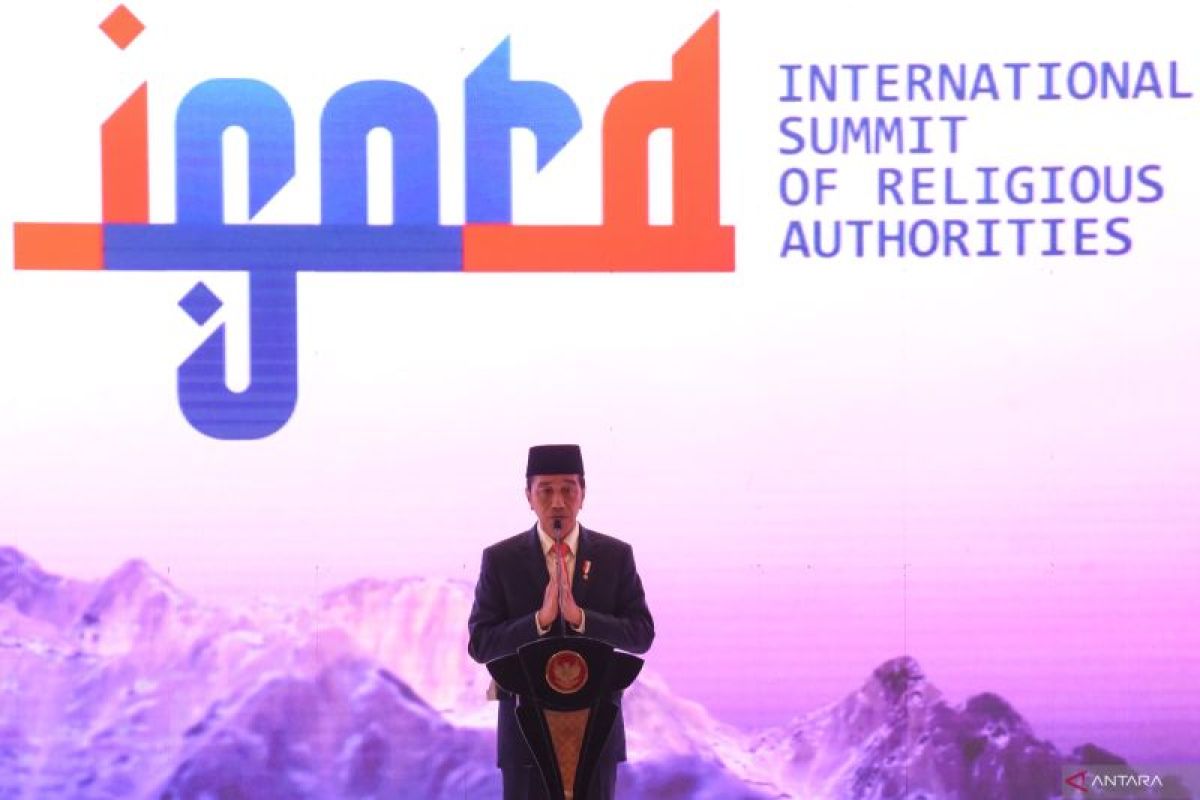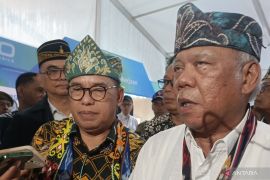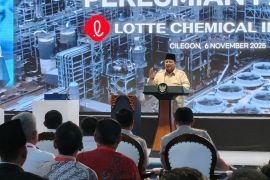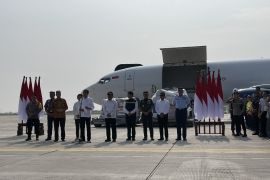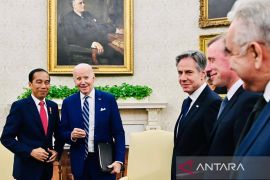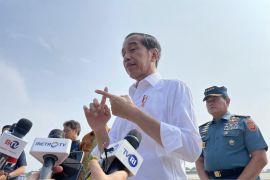"We urge religious authorities to mobilize their power and influence their respective communities to influence decision makers to stop armed conflicts in the Middle East, Europe, Sub-Saharan Africa, and other regions of the world," Chairperson of the Nahdlatul Ulama Executive Board (PBNU), Yahya Cholil Staquf, stated while explaining the first point of the agreement here on Monday.
Staquf urged religious leaders to raise their voices to stop the conflicts, as they are considered to have a moral and spiritual responsibility to ensure that their beliefs are ways to understand and reconcile and not as a trigger for hatred, tyranny, and identity-based violence.
The second emphasis of the R20 ISORA agreement is to push efforts to develop effective dialogue and negotiation mechanisms to allow peaceful resolution of conflicts.
Staquf explained that religious authorities, who serve God and humanity, need to persistently work together to maintain and strengthen the international consensus after the war ends and demand all parties' consistency in implementing the consensus.
"Given that these efforts of religious appeals are not enough, they then must be complemented by a deliberate and sustained strategy to mobilize the collective power of religions, including the support of people of all faiths in the same movement to achieve this noble goal," he affirmed.
President Joko Widodo (Jokowi) opened the R20 ISORA that was attended by 40 world religious leaders.
"Let us make this an interreligious and international dialogue to bridge differences and stop all forms of conflicts, so that we can realize a peaceful, harmonious, and prosperous world together," the president stated while opening the R20 ISORA.
In his speech, the president also drew attention to the Israeli massacre in Palestine.
"The massacre (in Palestine) was blatant that it took the lives of civilians, women, and children. A ceasefire must be carried out immediately, humanitarian aid must be accelerated, and peace negotiations must begin immediately," Jokowi stressed.
Related news: Wars, genocide in modern world are unbelievable: Jokowi
Indonesia believes that "independence is the right of all nations," and such a belief is stipulated in the Country's 1945 Constitution, Jokowi noted.
He added that Indonesia had, since long, upheld unity in diversity that exists in the country by bridging differences.
"Unity in diversity would not be realized if it is not backed by religious teachings and by religious leaders, who have taught us that love for the country, tolerance of differences, and maintaining unity, are part of faith," Jokowi stated.
R20 ISORA was initiated by PBNU as a conference between the world's religious leaders and a follow-up to the G20 series in Bali last year.
The meeting carried the theme of "The Role of Religions in Overcoming Violence in the Middle East and Threats to the Rules-Based International Order."
Minister of Foreign Affairs Retno Marsudi and Minister of Religious Affairs Yaqut Cholil Qoumas, among others, also attended the event.
Rabbi Dr. Yakov Nagen, the director of Ohr Torah Stone's Blickle Institute for Interfaith Dialogue and Beit Midrash for Judaism and Humanity, who was present at the summit, called on people across the world to return to their respective faith to bring peace in the world.
"If we return to God, God wants us to live peacefully and does not want us to live in violence," he stated during the event.
Furthermore, Staquf expected that the joint agreement would result in concrete actions to achieve world peace.
He affirmed that strategic action would be taken as an outcome of the meeting. He remarked that religious leaders present at the event were those who interact with the people and have connections with government officials. Thus, he expressed hope that religious figures would convey the message of R20 ISORA in their respective countries.
"Like Nahdlatul Ulama, we not only have influence on citizens, farmers, and others, but we also have influence on officials," he stated.
Related news: Jokowi urges religious leaders to help in reducing world rivalry
He noted that conflicts in parts of the world, including in Palestine, should be viewed from a humanitarian side. However, he said, religion must be one of the ways to solve these humanitarian problems.
"We invite the religious leaders to counsel, discuss on what concrete actions can be taken together to solve conflicts in Gaza, Palestine, and others on the banks of the Sahara and in Europe," he remarked.
Earlier, President Jokowi said the wars and massacres in the modern era were very unreasonable and made of out conscience.
He said, the fact that Indonesia is able to erode tribal, religious, and regional egos in order to realize the nation's motto of Bhinneka Tunggal Ika should be lauded.
Indonesia believes the role of religion, religious figures, and society is very important in creating peace, harmony, and togetherness both within a country, within a region, and the whole world, the president remarked.
Related news: R20, Gus Dur, and World Peace
Editor: Yuni Arisandy Sinaga
Copyright © ANTARA 2023
